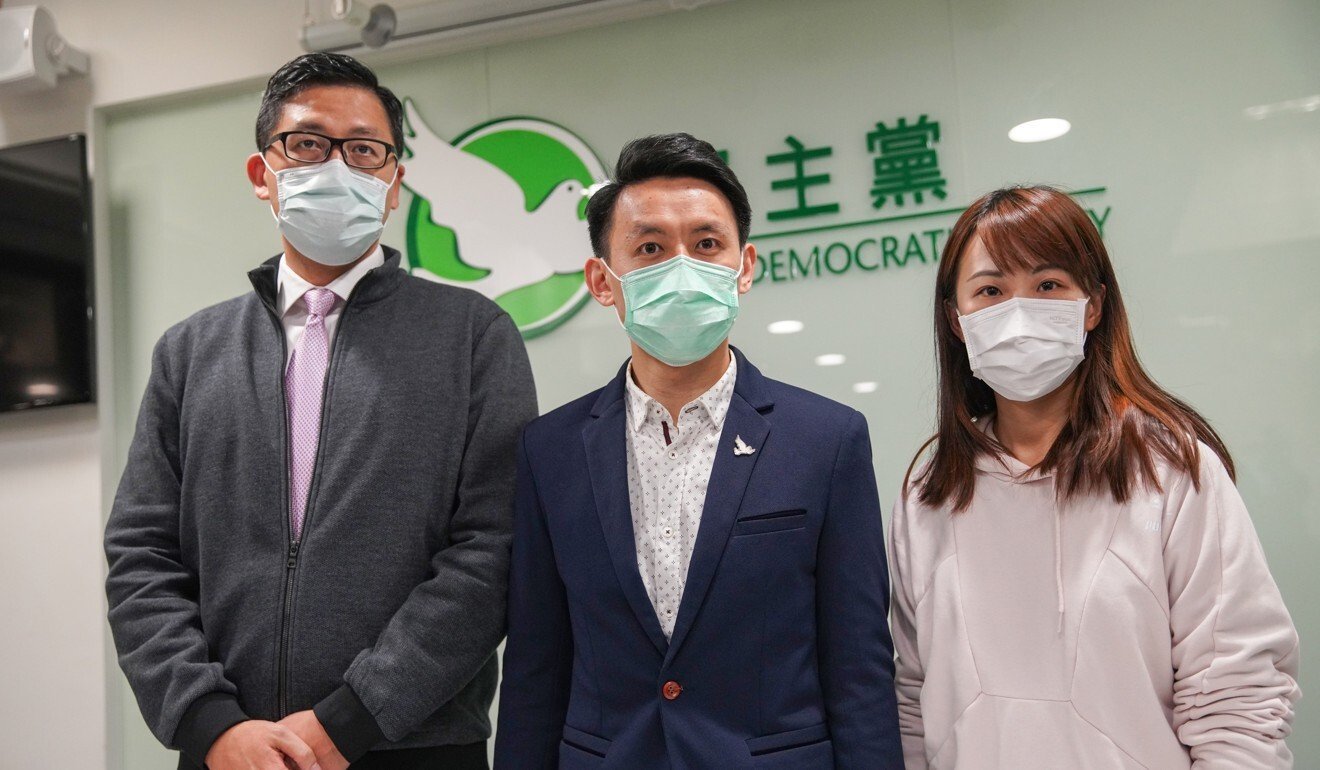Hong Kong News

Hong Kong’s Democratic Party elects youngest-ever chairman, other fresh faces
Lo Kin-hei, a rising star in Hong Kong’s Democratic Party, the city’s leading opposition faction, has become its youngest-ever chairman, pledging to work with members to explore new avenues to press its fight for democracy.
The 36-year-old, however, refused to be drawn into discussing the party’s plans for the coming Legislative Council elections, expected next summer, saying only that the newly installed leadership would discuss the issue with members.
“The meaning of the so-called frontline is very different nowadays. Whether we should give up or what direction we should take – we would like to hold thorough discussions with our members,” Lo said.
“We will not easily give up on any front, and I can assure our supporters we will do our best in whatever frontier we may be in.”

Lo ran uncontested for the position in a Sunday poll that saw other young faces elected to the party’s governing central committee. Lo’s predecessor, Wu Chi-wai, did not seek re-election.
Lo, who had served as a party vice-chairman since 2012 and more recently assumed chairmanship
of the Southern District Council, dismissed speculation that the party would become more radical or localist under younger leadership.
“I want to hold discussions with our party members and central committee colleagues to explore new ideas for the future road of the party,” Lo told reporters after the party election.
“Now we have a new leadership, and we hope we can come up with new ideas to cope with the challenges ahead. While there seems to have been a big change in the leadership, there are some basic principles of the party that will not be easily shaken.”
The party was founded in 1994 as a merger of the United Democrats of Hong Kong and the Meeting Point and was initially considered moderate within the pan-democracy camp.
Its manifesto states that it recognises Hong Kong as an inalienable part of China and supports the city’s reunification with China. It also says that the party supports the “one country, two systems” principle and “Hong Kong people administering Hong Kong”, which it says is conducive to stability and prosperity.
The Democratic Party once had seven seats in the legislature along with 89 district councillors.
But all of its lawmakers, including Wu, quit the legislature together with other pan-democrats last month in protest against Beijing’s move to disqualify four of their opposition colleagues.
Polytechnic University political scientist Chan Wai-keung said the dilemma now facing the new party leadership was whether they should continue with what he saw as an increasingly “radical” approach.
“It used to be a moderate party. Under Wu Chi-wai, it turned more radical, especially after the anti-extradition bill saga last year. But the result is that they had a total loss, and now have no voice even in the legislature,” Chan said.
“But if they return to their moderate approach, it may lose the support of the young voters or the localist faction in the opposition camp.”
Chinese University political scientist Ivan Choy Chi-keung shared similar views, and said he expected the Democratic Party to adopt a more localist approach with the young leadership.
Serving as one of Lo’s deputies is former lawmaker Lam Cheuk-ting. Kwun Tong district councillor Edith Leung Yik-ting was chosen as the other vice-chairman.
To keep the party’s voices heard while out of Legco, Lo said the three former legislators still on the party’s governing central committee – Lam, Wu and Andrew Wan Siu-kin – would meet the press regularly.
Separately, Lam told reporters the party would keep offering help to former Democratic Party lawmaker Ted Hui Chi-fung, who abruptly fled Hong Kong to begin self-exile in Britain.
Among the young members elected to the party’s central committee were Kwun Tong district councillor Cheng Keng-ieong, Eastern district councillors Chow Cheuk-ki and So Yat-hang, Tuen Mun district councillor Alfred Lai Chun-wing, and Yau Tsim Mong district councillor Tsang Tsz-ming.
Lo joined the Democratic Party in 2006 after graduating from the University of Hong Kong, starting out as a community officer.











